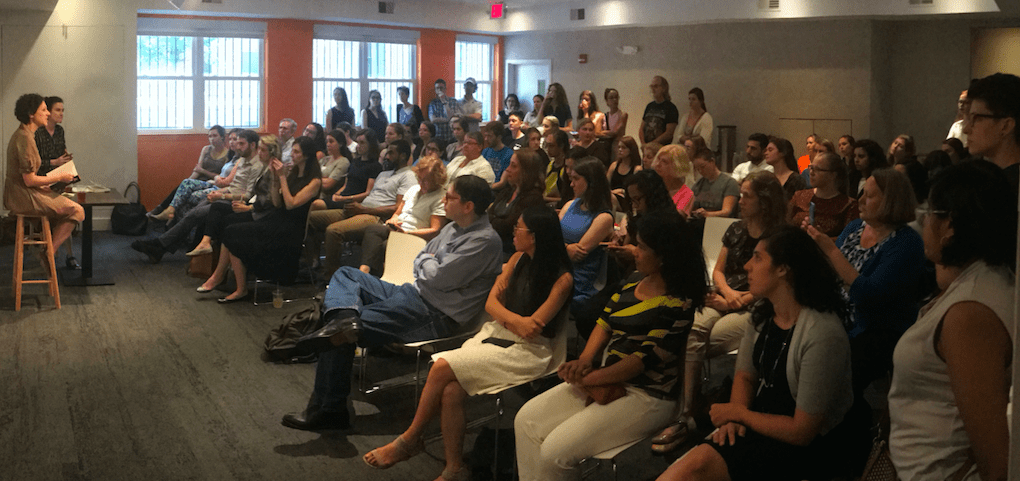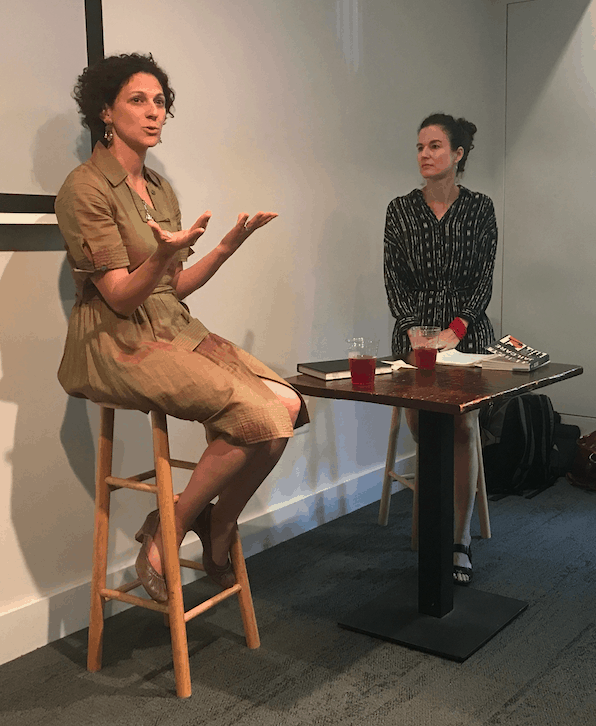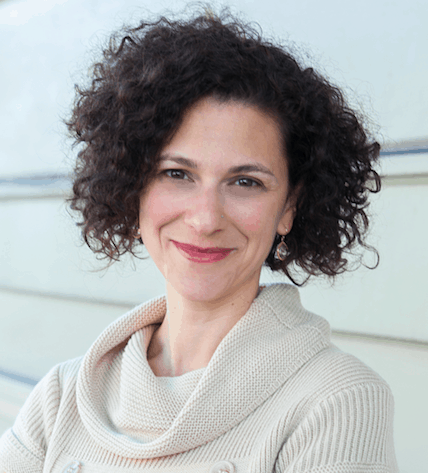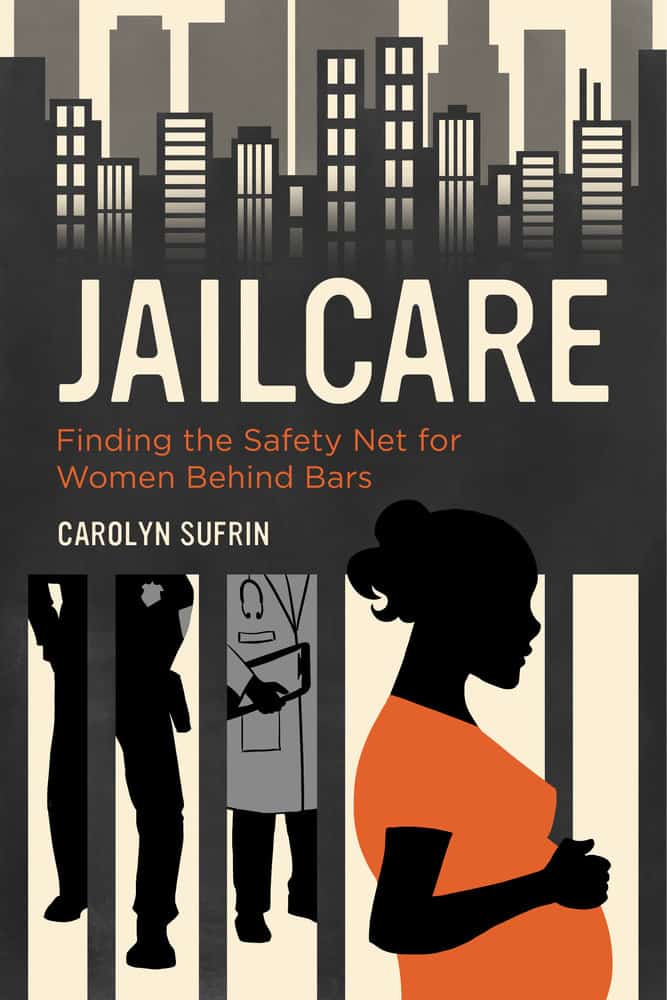By Carolyn Sufrin, author of Jailcare: Finding the Safety Net for Women behind Bars
Earlier this month, the book launch event for Jailcare: Finding the Safety Net for Women behind Bars was held at The Potter’s House in Washington, D.C., a progressive non-profit bookstore and café with roots in social justice.
It was an apt community space to host a discussion of this book, which describes some of the everyday realities of mass incarceration in our country and how the failures of society to care for women on the margins have created a situation where jail has become an integral part of the safety net for these women.

I was fortunate to speak in front of a standing room-only, engaged audience from an array of backgrounds—health care providers, lawyers, activists, students, anthropologists and other researchers, as well as people from the Department of Justice, Planned Parenthood, local non-profits, and others.

Amy Fettig, Deputy Director at the ACLU’s National Prison Project, moderated the event and shared an overview of incarceration and health care behind bars. Fettig herself has successfully litigated many cases to improve health care conditions for incarcerated people. After I read a few excerpts from Jailcare, Fettig asked questions that got to the heart of the nuances and contradictions of jailcare, such as how jail workers approach pregnant women as deserving—or not deserving—of care. This sparked a lively discussion about the paradoxes of the constitutional requirement that prisons and jails must provide health care.
A question from the audience built on this requirement, specifically the idea of keeping prisoners alive through health care with a probing reminder of the connections with slavery—“Once you become incarcerated you become property of the state. And then the system has a responsibility to keep you alive”—similar to plantation owners needing to keep their slaves alive to continue to exploit their labor.
The discussion also included some practical strategies for shifting the role of jail and incarceration in managing social problems. For example:
- Comprehensive bail reform: filling jails with people who are not a safety or flight threat puts undue pressure on the system. The issue of people being held in jail for long periods of time because they cannot afford small bail amounts helped people recognize the role that poverty plays in incarceration.
- Neighborly community interaction: An audience member suggested that we, as neighbors, rethink the reasons for why we call the police to come to our neighborhoods and consider alternative strategies that make the police more community members rather than those policing the community.
- Helping the helpers: we discussed the importance of making social safety net services higher quality by trying to address staff burnout, thereby improving their investment and relationships they have with the people whom they are attempting to help.

 Carolyn Sufrin is a medical anthropologist and an obstetrician-gynecologist at Johns Hopkins University School of Medicine. Learn more about Jailcare at www.jailcare.org/.
Carolyn Sufrin is a medical anthropologist and an obstetrician-gynecologist at Johns Hopkins University School of Medicine. Learn more about Jailcare at www.jailcare.org/.

